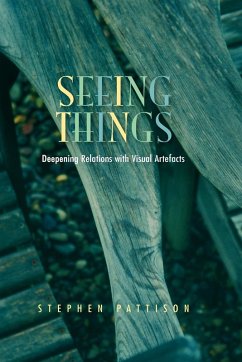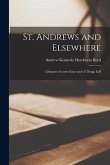Seeing Things considers in detail the experience of perceiving visual objects, from high art to everyday artefacts. It looks in particular at the problems encountered with the ways we in Western culture look upon the world and things, and encourages and argues for ways to look and visualise the world more critically, broadly and widely. Sight is one of the main ways we perceive and relate to the world, and yet it is mostly assumed rather than actively reflected on. Objects designated as art and the realm of aesthetics attract some active attention and reflection, but most of the visible world is ignored in the context of what is described here as our 'ordinary blindness'. The author of this book is arguing that the range of things we choose to see and value is arbitrary and limited and the ways in which we relate to things and objects are mostly crude and un-nuanced. It is also argued here that it is desirable to consider more person-like relationships with all manner of visibly perceived objects, from classical sculptures to tennis rackets. If we begin to apply this person-like relationship with things, we transgress the Western secular and religious practice and belief that maintains that the realm of the manufactured is 'dead' and so can be treated by humans exactly as they wish without consideration. This person-like relationship does not mean reanimating or re-sacramentalising the world, but observation and exploration of the actual phenomenology of the object should not be a lost cause. Professor Stephen Pattison is currently Professor of Religion, Ethics and Practice at the University of Birmingham. He is widely published, writing A Critique of Pastoral Care, for SCM, 1988, 1993, 2000. He recently held the prestigious position of Gifford Lecturer in 2007
Bitte wählen Sie Ihr Anliegen aus.
Rechnungen
Retourenschein anfordern
Bestellstatus
Storno





![Things to Be Remembered [microform]: a Sermon Things to Be Remembered [microform]: a Sermon](https://bilder.buecher.de/produkte/64/64367/64367418m.jpg)


